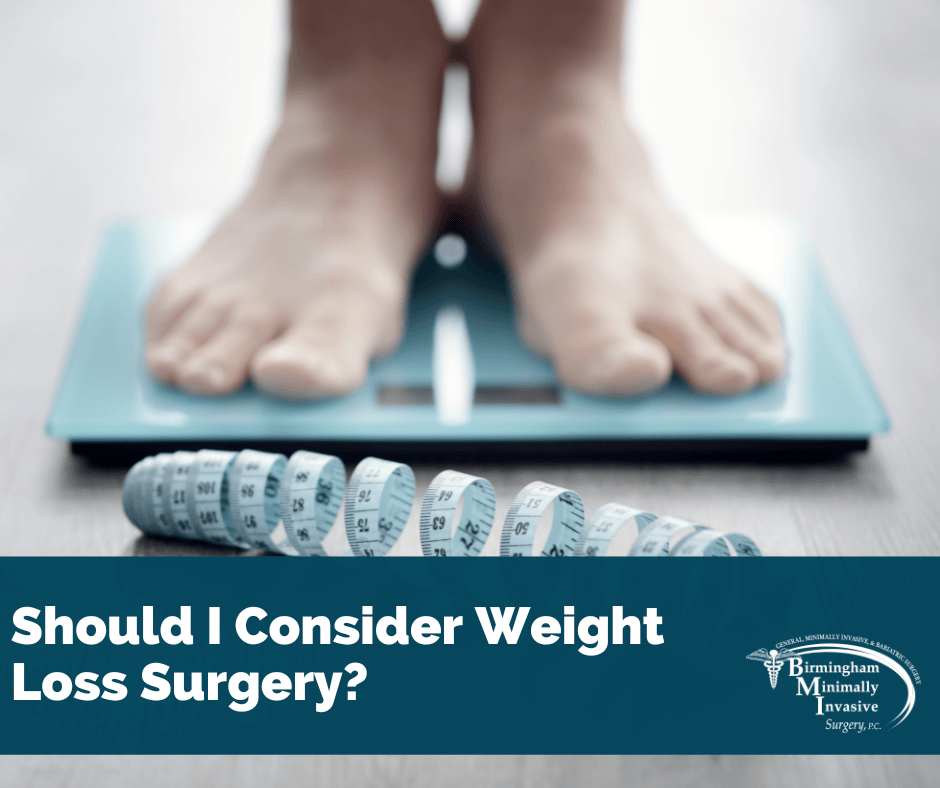

As the year draws closer, holiday parties are in full swing. While this can often be an exciting and exceptionally cheerful time, it can be challenging to stay on track with your weight loss goals amidst office-sponsored parties, break room treats, holiday lunch specials, and long workdays.
At BMI Surgery, we want to help you make healthy choices this winter. Here, we discuss our top tips for maintaining weight loss, like hydration, meal prepping, and managing stress so that you can feel confident this holiday season.
Hydrate, Hydrate, Hydrate
Hydration boosts your energy, increases focus and helps you maintain your weight loss goals. If you aren’t properly hydrated, your body compensates by slowing down metabolic processes leading to weight gain, lethargy, headaches, and more. And, if you’re dehydrated, you may mistake thirst for hunger and possibly overheat.
Next time you’re headed to a holiday celebration, bring a reusable water bottle to help you stay hydrated. Better yet, keep one at your desk daily so you can easily refill it whenever you need it. The average amount of fluids you should aim for is about 15.5 cups (3.7 liters) of fluids daily for men and about 11.5 cups (2.7 liters) for women. Most of this fluid intake should be water. If you drink caffeine, we recommend no more than 400 milligrams per day–that’s about 4 cups of coffee. Once you reach that, choose decaf tea or lemonade if you’re still thirsty for something other than water.
Create a Healthy Snack Tray
During a busy workday, it can be easy to grab the first available food option—healthy or not. To avoid the temptation of break room treats, vending machine snacks, or sugary drinks that may derail your weight loss efforts, try creating a healthy snack tray at your desk.
We recommend filling this try with snacks you actually enjoy so you’re excited to stay on track and they don’t go to waste. Some of our favorite snacks for maintaining weight loss include:
- Nuts
- Berries
- Granola
- Cheese
- Jerky
If you place this tray in a convenient spot, like on top of your desk or inside a drawer, you are more likely to choose a healthy alternative to the vending machine and keep your eye on the weight loss prize.
Prioritize Staying Active
Long periods of sitting aren’t doing you any weight loss favors, and these sedentary periods can even increase the risk of heart disease, obesity, and other ailments. While we can’t help all ditch our desks for a more active alternative, there are still some ways to prioritize activity throughout the day.
One of the best ways to stay active throughout the workday is by utilizing your lunch break. Instead of eating lunch at your desk or in the break room, get your heart rate up and stand up to eat your meal. Afterward, take a walk outside, walk up and down the stairs, or sneak in a quick workout.
If you find yourself waiting for coffee in the office, heating food in the microwave, or waiting for a meeting room to open up, practice small forms of exercise while you wait. Squats, lunges, calf raises, and arm circles are great ways to stay active amidst a busy workday.
Meal Prep Your Work Day Meals
Planning is essential to maintain your weight loss, especially during the hectic holiday season. If you prepare and portion out your workday meals ahead of time in grab & go containers, it can make your week less stressful and support your maintenance efforts. We recommend preparing meals you like, so you’ll be less tempted to ditch Tupperware for not-so-nutritious takeout.
A few of our favorite meal prep recipes are curried chicken salad, spicy spaghetti squash with shrimp, and slow-cooker bean and barley soup. When in doubt, combining a protein source (chicken, beef, fish), vegetable or fruits (broccoli, asparagus, berries), and grains (corn, beans, whole wheat bread) is the foundation of excellent meal preparation.
Manage Your Stress
The holiday season is full of jolliness, festive cheer, and, often, stress. Many of us experience an uptick in work deadlines and mandatory holiday parties, both of which can be nerve-racking. Did you know that stress can contribute to weight gain? The hormone released when your body is stressed, called cortisol, stimulates fat and carbohydrate metabolism, creating increased hunger and cravings for sweet, fatty, or salty foods.
We recommend finding a stress management tool that works for you and sticking to it. You might consider meditation, breathing exercises, yoga, talking with a friend, and walking. No matter how you manage your stress, the best methods are free, applicable to many situations, and provide noticeable relief.
Feel Your Best This Winter
Stay on track with your fitness goals during the most special time of the year! Whether you work in an office or work from home, you can apply these tips and tricks to make healthy choices at your next office party or your next busy holiday workday. The team at BMI Surgery can provide more knowledge and advice about maintaining weight loss this winter. Feel your best with BMI Surgery!
Begin Your Weight Loss Journey Today at BMI Surgery
Maintain your weight loss while at work with help from Birmingham Minimally Invasive Surgery. Dr. Long and his team specialize in all types of bariatric surgery, including gastric sleeve surgery, gastric bypass, and the LAP-BAND. Contact us online or call us to set up a consultation at 205-850-1973.








 There are many ways to lose weight, including dieting, exercise, and even some medications that are approved for weight loss. For some of us, however, these options aren’t adequate to get started on the journey. When you need help achieving significant weight loss,
There are many ways to lose weight, including dieting, exercise, and even some medications that are approved for weight loss. For some of us, however, these options aren’t adequate to get started on the journey. When you need help achieving significant weight loss, 
 Starting a family is a common goal that many people share. But if you’ve struggled with obesity and are hoping to achieve that goal, there are many misconceptions out there about your options. Many women aren’t sure whether
Starting a family is a common goal that many people share. But if you’ve struggled with obesity and are hoping to achieve that goal, there are many misconceptions out there about your options. Many women aren’t sure whether 
